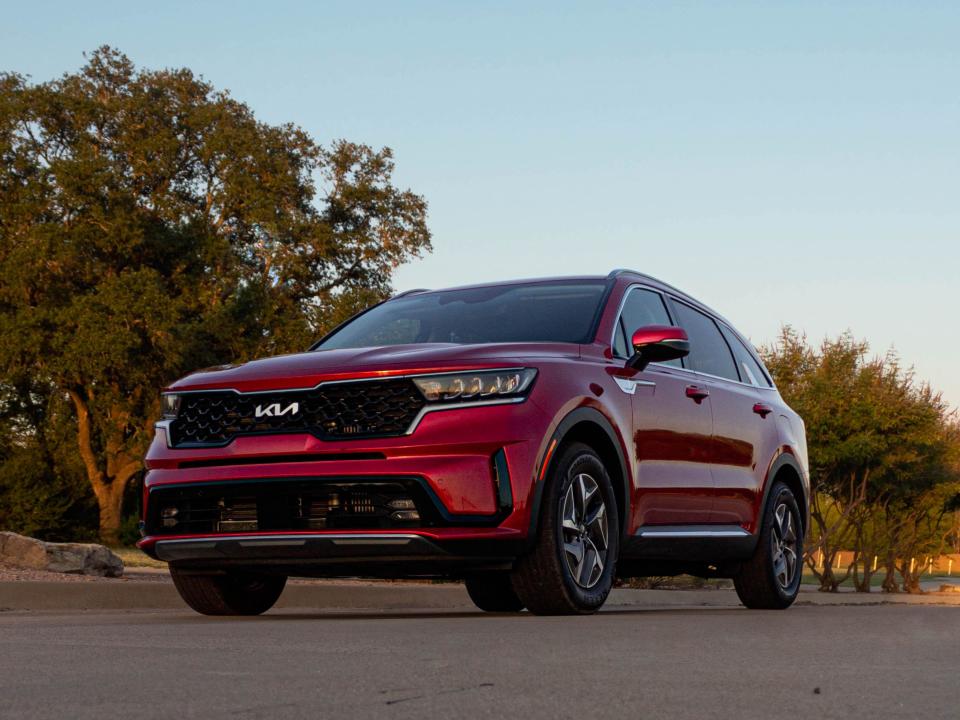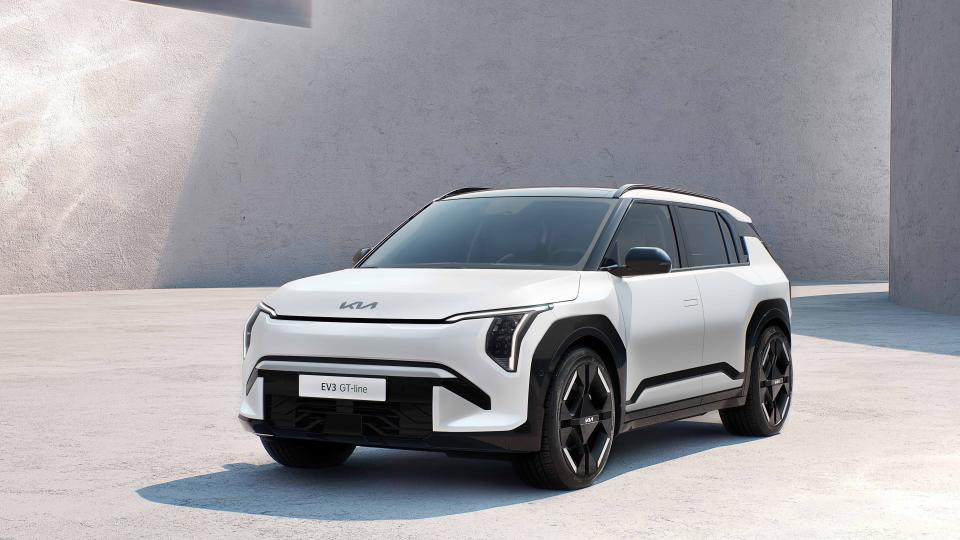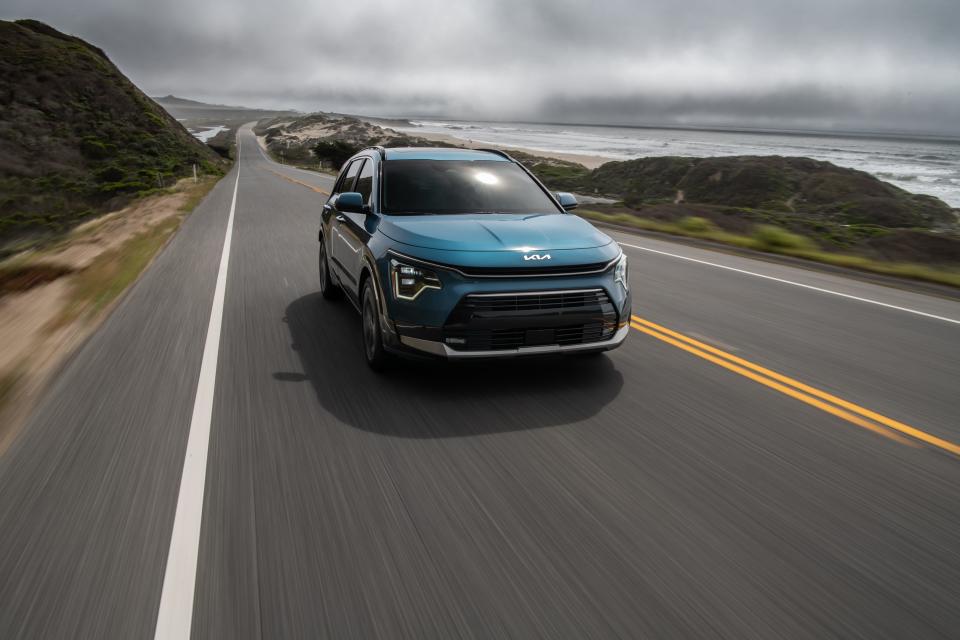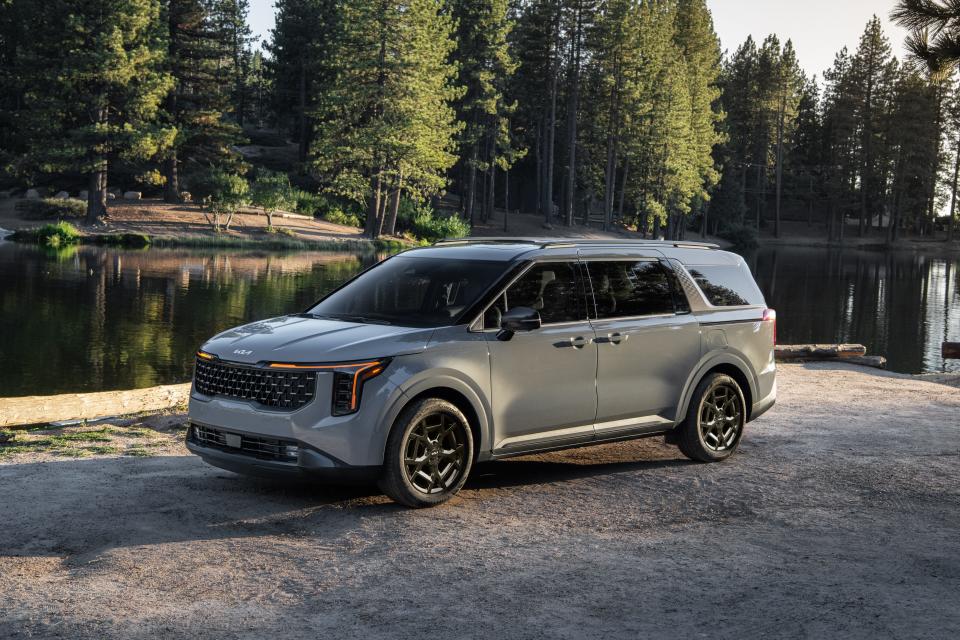Kia says hybrids aren't a threat to EVs but are the perfect gateway to electrification

Automakers and their suppliers have invested hundreds of billions of dollars in EVs.
Demand for EVs has slowed over the past year while consumer interest in hybrids has soared.
Kia says hybrids are an opportunity to get hesitant EV buyers into electrification.
In recent years, global automakers and their suppliers have invested hundreds of billions of dollars in developing new electric vehicles and the infrastructure to build and support them.
However, even as the automotive industry marches toward the inevitable point of full electrification, demand for EVs has slowed over the past year while interest in hybrids has soared.
Hybrids, with their excellent efficiency and lower cost, offer consumers a range-anxiety-free alternative to help bridge the gap between internal combustion and EVs, Steve Kosowski, the manager for Long Range Planning and Strategy at Kia Motors America, told Business Insider in a recent interview.
While EV sales fell in the first quarter of 2024 by more than 15% compared to the previous three months — their first drop since 2020 — hybrid sales are booming.
Traditional hybrids, with lower price points and limited all-electric range, saw a 45.7% sales uptick from January to March, while plug-ins, which are pricier but can go upwards of 60 miles on batteries, grew a whopping 69.7%, according to figures from PWC.

As a result, some automakers have postponed their plans to abandon internal combustion engines completely.
This development would seemingly threaten Kia, which has launched about half a dozen new BEVs in recent years, including the stylish EV3 SUV this May.
But Kia sees hybrids as an opportunity to get potential BEV buyers in the door.
"If you look at resistance in the market to buying an EV, number one is price and then it's range and (charging) infrastructure, " Kosowski said. "But if you look at hybrids and PHEVs, the resistance because of price is much much lower."
"The last time I looked, transaction prices for EVs and plug-in hybrids were in the same area, which signals to me that consumers want to electrify and are willing to pay for it," he added."
With range anxiety a non-issue, hybrids, especially those of the plug-in variety, allow people who are hesitant to fully electrify a way to ease into it.

Hybrids accounted for about 8.4% of the total market during the first quarter of 2024.
But if you look at the largest and arguably most important segment these days, compact SUVs, hybrids account for nearly one-fifth of sales, Kosowski said.
This places added importance on the need to have hybrid options available for sale.
Fortunately for Kia, the company hedged its strategy and has no fewer than half a dozen hybrids and PHEVs currently on sale in the US, including the Niro Hybrid and Sportage PHEV compact SUVs.
"As an automaker, you take a step back from this, and you go, it makes so much more sense to proliferate hybrids within your lineup," he said.
For Kia, building hybrids instead of EVs affects its bottom line beyond the revenue it generates. EVs cost substantially more to build than ICE and hybrid vehicles.

According to Kosowski, who has spent the past two decades with Kia, the material cost of a typical ICE car is half of the sticker price. The cost of materials to build an EV is 50% more than that.
"This is the 800-pound gorilla in the room for the industry," he added. "The thing about EVs is their material cost is so high that the margin for everybody gets squeezed until it becomes negative."
The popularity is a surprising turn of events from hybrids. Until recentlythey were maligned by consumers for being substantially more expensive and complex than a fully ICE vehicle and by environmentalists for not being as eco-friendly as a full BEV.
However, hybrids' day in the sun is likely to be temporary due to increasingly stringent environmental regulations.
"EV sales can only go up. These cars are coming because every automaker has to sell in order to meet zero-emissions vehicle production (ZEV) regulations, and greenhouse has rules," Kosowski said.
Read the original article on Business Insider

 Yahoo Autos
Yahoo Autos 